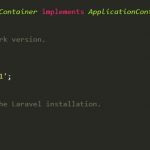Computer Science is a broad field with many different aspects. In this blog post, we will focus on the basics of computer science and what it means to be a computer scientist. This includes an introduction to some of the most popular topics in Computer Science such as data structures, algorithms, and networking.
Computer science is the study of computers, how they work and basic skills in computer programming. You can learn about it with a degree in CS or CompSci which are just shortened versions of the world’s most popular acronym for this field – Computer Science!
Computer scientists have studied things like software and hardware to gain knowledge that people without degrees might not know. They also understand one or more computing languages such as Java, C++, Python etc., depending on what their focus was from studying these fields during school time (alongside other subjects).

Table of Contents
What Does a Computer Scientist Do?
A computer scientist is someone who spends their time solving complex problems that usually involve more than one discipline. Although there are many different types of computer scientists, they all have the same goal to make things faster and easier for everyone.
For example, some might want to design computers so it takes less power as well as designing software with easy-to-use interfaces. One way to think about this would be: “computer science makes life better.” A lot of people often confuse these two terms but in reality they are very different from each other.
What Are the Computer Science Career Fields?
Computer scientists can work in a variety of career fields. They are often found working as software developers, programmers, or computer network architects and designers. One thing they all have in common is that they use their extensive knowledge of how computers work to create innovative solutions for problems we face today (for example: designing an algorithm).
Some other job titles you might see include data scientist; database designer; web developer; game programmer; mobile application developer; hardware engineer…
The possibilities are endless! But what’s really interesting about these jobs is not just the title but rather it’s where they take place – which could be at your school, on Wall Street developing new trading algorithms, solving cybersecurity issues, or even working in an oil rig offshore.
Computer Programming is one of the most common ways to break into computer science, and it’s a skill that will serve you well for years no matter what career path you choose (and don’t worry if you’re not great at math – programming doesn’t need any).
Programming languages are different from spoken ones because they have strict rules about how words should be used and combined together to build something more complex like websites, video games, apps… The best way to get started on getting good at coding is by playing around with Scratch (a visual language) and learning Python. And once you’ve mastered these two languages? You can then try out Java or JavaScript!
Who is the father of computer science?
Alan Turing was regarded as the father of computer science.
Computer science is a branch of math, which means you can think about it as another form of logic and problem solving. It’s also really similar to mathematics in that every new concept builds on the previous one – understanding calculus before trigonometry will make your life significantly easier!
A lot of people are wary of computer scientists because they don’t like working with computers or coding (or find them too confusing) but many languages allow for easy translation from written language and just need humans to come up with an algorithm for how things should be done. There are lots more careers available than those who program computers directly!
Alan Turing was clearly aware early on what he wanted his field to look like when he published “Computing Machinery And Intelligence” in 1950.
He talked about the thought experiment of a machine that would fool an interrogator, and this is now known as The Turing Test. It’s been theorized for years but never successfully completed – let’s hope someone figures it out before humanity falls!



